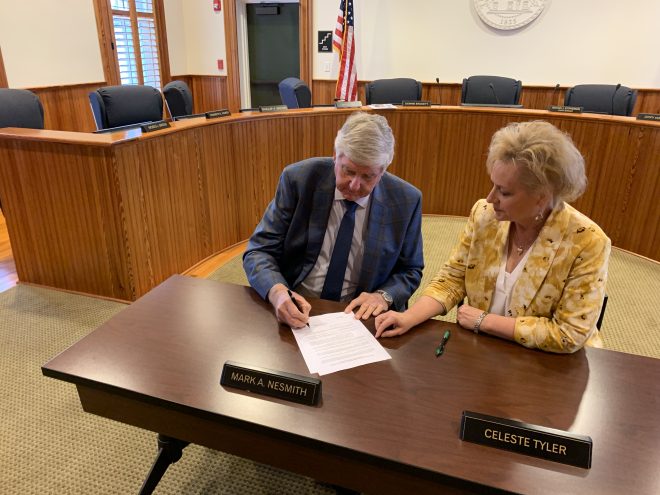Rapists can still assert parental rights through legal loophole
Published 9:57 am Tuesday, May 16, 2017
BOSTON — Advocates want to close loopholes in a law, intended to protect victims of domestic violence, that may unintentionally give rapists the ability to seek parental rights over children conceived during a sexual assault.
In 2014, Gov. Deval Patrick signed a bill that expanded the definition of sexual assault, lengthened the waiting period before bail could be set for alleged rapists, and required employers to provide up to 15 days of time off for assault victims.
A provision of the law limits the parental rights of convicted rapists over children conceived during a sexual assault, but it also gives offenders the ability to challenge the statute if a judge “makes an independent determination that visitation is in the best interest of the child.”
Advocates say that could result in a rape victims being forced to face their attackers over custody rights.
Even if a judge denies visitation, the law implies that rapists are entitled to due process in family court, including cross-examination of the victim, advocates say.
“Simply put, rape and family do not go together,” said Wendy Murphy, an attorney and director of the Women’s and Children’s Advocacy Project at the Boston-based Center for Law and Social Responsibility, during a hearing Monday.
“This statute empowers rapists with legal authority they can then assert over victims and use to control and abuse them years after the crime,” she said.
Lawmakers are weighing several bills that would clear up the ambiguity.
One proposal — backed by 37 lawmakers including Sen. Joan Lovely, D-Salem — would prevent judges from granting visitation or custody rights to a parent convicted of rape. A similar proposal would block rapists from getting custody or parental rights over a child.
Both proposals would still require rapists to provide child support if a judge orders it.
Rep. Michelle DuBois, D-Brockton, who filed one of the bills, told the panel on Monday that the law allows rapists to petition for custody until a child turns 18.
“This is an undue infringement on the rape victim’s rights to move on with her life, without fear that her rapist will resurface and force an unwanted relationship with her and her child,” she said.
Murphy, who represents a woman who was raped at age 14 and is fighting for parental rights against the man who raped her, said many proposals don’t go far enough to protect victims because, among other concerns, they require a rapist’s conviction.
She’s written a bill, filed by Sen. William Brownsberger, D-Belmont, that bans family and probate court judges from even considering the issue of parental rights from the birth of the child until a rapist is convicted or exonerated.
“This will prevent the absurd result of having rape-created children forced into harmful relationships with rapists after birth and before conviction,” Murphy said.
Massachusetts is one of two dozen states that require a criminal conviction to block most parental rights, according to the National Conference of State Legislatures. Other states deny parental rights if there’s “clear and convincing evidence” that an individual carried out a sexual assault that resulted in the conception of the child.
Nationally only 36 percent of rapes are reported, according to the Bureau of Justice Statistics, and just 12 percent of sexual assaults result in the arrest of a perpetrator.
“Our main concern is that sexual assault victims are able to prevent perpetrators from getting visitation or custody of the child,” said Maureen Gallagher, policy director at Jane Doe Inc., a coalition focused on sexual assault and domestic violence issues. “It can and does happen, and we need to make sure victims are protected.”
Christian M. Wade covers the Massachusetts Statehouse. Email him at cwade@cnhi.com.





